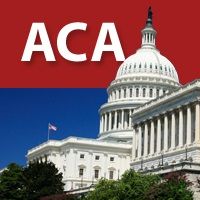Medicare Reform: Bundled Payments Announced by CMS

The controversial move to bundled payments is well underway at the Centers for Medicare and Medicaid Services (CMS).
In an effort to cut costs and get physicians to adhere closely to quality guidelines, aspects of the payment model known as “value-based care,” CMS today announced three new bundled payment models in cardiac care, an expansion on the Comprehensive Care for Joint Replacement Model (CCJR), and a highly anticipated new track in the Medicare Shared Savings Program (MSSP). Those who comply will be eligible for a 5% enhancement in reimbursement.
The cardiac payment model includes: the Acute Myocardial Infarction (AMI) Model; the Coronary Artery Bypass Graft (CABG) Model; and the Cardiac Rehabilitation Incentive Payment Model.
AMI and CABG will be implemented in 98 areas and rehabilitation model will be implemented in 90 geographic areas, half of which overlap with areas that were also selected for the AMI and CABG Models.
The CCJR is being expanded in the current CJR areas to include surgeries for hip and femur fractures.
The models will begin on July 1, 2017 and run until December 31, 2021, plus they count as participation in an Advanced APM under MACRA, which means clinicians qualify for a 5% incentive payment. There are some who remain opposed to the mandatory nature of the bundled payment models for cardiac care and hip and knee replacement.
At the American College of Cardiology, President Richard Chazal, MD, said “this new path for cardiologists to participate in Advanced Alternative Payment models under MACRA’s Quality Payment Program is a challenging step. It is our sincere hope that the end result will be opportunities for coordinated care and improvement in quality, while also decreasing costs for patients with heart attack or who undergo bypass surgery.”
Tom Nickels, executive vice president of government relations and public policy of the American Hospital Association (AHA), called it “too much, too soon.” The pace of change leaves AHA concerned. “While it is important to test new payment models, hospitals should not be forced to participate in complicated new programs if the government has not already proven that they will benefit the patients we serve,” he said. “We will continue to urge that any new bundled payment programs be of a voluntary nature.”
Another opponent? Representative Tom Price, R-Georgia, who is President-elect Donald J. Trump’s pick to run Health and Human Services. On September 29, Price and other members of Congress wrote to CMS Acting Administrator Andy Slavitt and Patrick Conway, MD, MSc, deputy administrator of innovation and quality and chief medical officer of CMS, that mandatory payment reform exceeds the authority of the Center for Medicare and Medicaid Innovation (CMMI). “We insist CMMI stop experimenting with Americans’ health, and cease all current and future planned mandatory initiatives within the CMMI,” the letter said. It seems likely that Price will scrap plans for the mandatory bundled payment models. CMS also announced Track 1+, a new accountable care organization (ACO) model under MSSP. The new track has more limited downside risk than Tracks 2 and 3. The Track 1+ model qualifies participating ACOs for the Advanced APM path.
The changes also provide additional opportunities for providers to participate in the Medicare Access and CHIP Reauthorization Act (MACRA) under the Advanced Alternative Payment Model (APM) path, according to CMS.